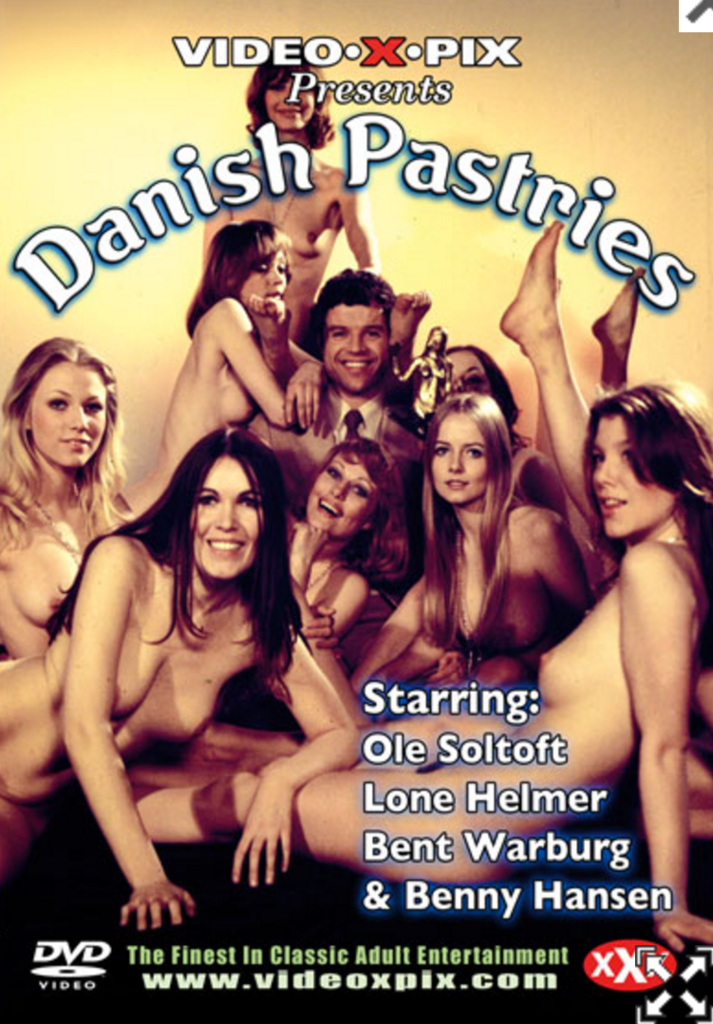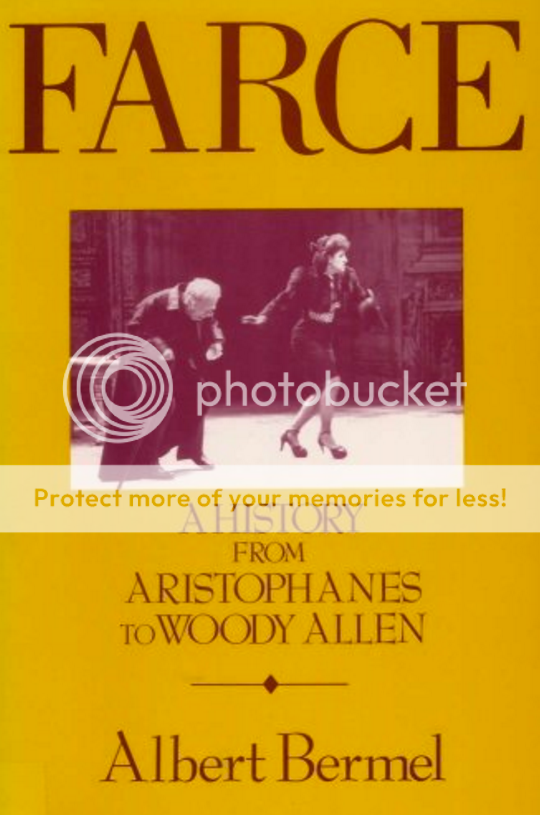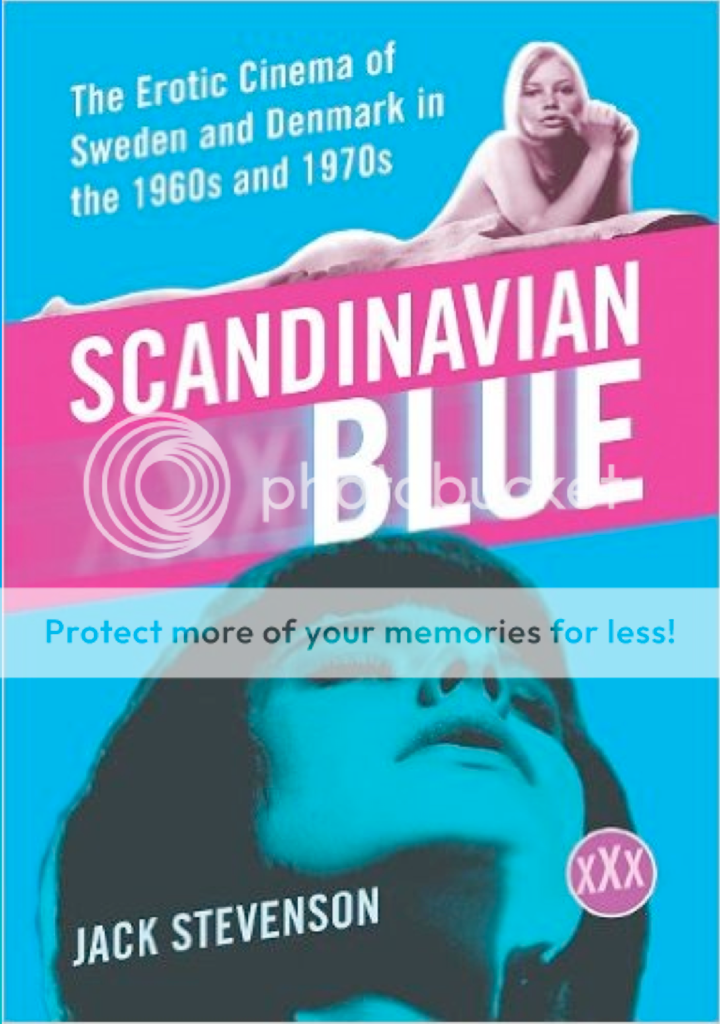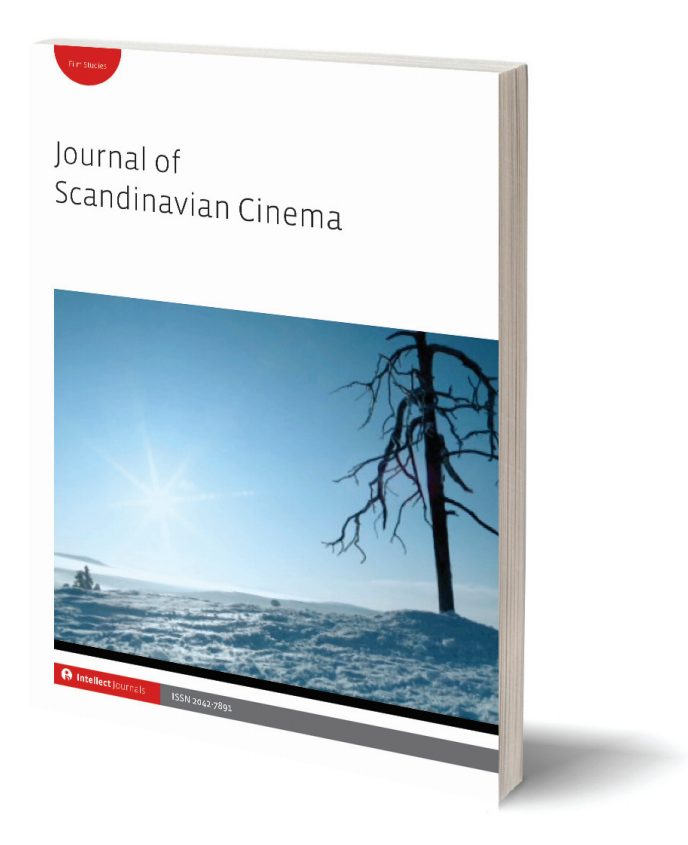 |
| Benny Hansen (left) and Ole Søltof (right) in I Jomfruens Tegn |
Near the the
beginning of Finn Karlsson's 1973 Danish hardcore film I Jomfruens Tegn ("In the Sign of
the Virgin," U.S. title, Danish Pastries), Mr. Armand (Ole
Søltof, star of major studio Palladium’s hugely popular Bedside series),
a visiting administrative superintendent of a provincial girls’ academy who has
mistaken a town brothel for the school, and the unnamed husband (Benny
Hansen) of the brothel Madame, engage in a minutes-long conversation at
cross purposes. Armand believes he is discussing the astrological
foundations for the strict psychological discipline that underlies the school’s
teaching method, and the husband thinks that the astrological signs Armand is
discussing are code words for the female employees of the establishment and the
services they offer to clients. After Armand asserts that he is a
Virgin (a statement which seems to be true in both senses of the word), the
Benny Hansen character expresses annoyance at Armand’s supposed use of
euphemism (“Is all this crap really necessary?”), and the conversation,
flawlessly performed in a single take with perfect comic timing by two
well-known mainstream comic actors, devolves into a sexual “Who’s On First” set
of misunderstandings (“[Astrological] balance? Nah, we just call it
a three way. . . Geminis? We’d like to have a pair of those, but
they’re hard to get these days,” etc.), before Armand asks to see the
“headmistress” and is taken upstairs to meet Gine, the Madame.
How did this
scene featuring one of Denmark’s most popular mainstream comic actors find its
way into a sexually explicit film that in two years would be playing in porn
theaters in American inner-city neighborhoods? Film historian Jack
Stevenson has identified the “folk comedy” as one of the dominant sub-genres of
Danish erotic cinema. This production trend reached critical mass in 1970 with
director John Hilberd’s Mazurka på sengekanten / Bedroom Mazurka, the first installment of Hilbert’s soft-core Bedside series
very loosely based on the work of comic novelist Erik Soya. Both
softcore and hardcore films which followed in the wake of this series developed
a highly successful formula which included recognizable film and television
actors in stylized comic roles, brief scenes of explicit sex performed by
extras or body doubles for the name performers, and plots derived from the farce or
New Comedy which included mistaken identity, chase sequences, and a mockery of
middle-class propriety and sexual repression. The bubbly, anodyne
quality of these and other sex films, which were collectively known by the
Americanized neologism “glad porn,” was described by one Danish critic
as “sex entertainment for the whole family.” The most successful
series of hardcore Danish folk comedies was the six Tegn or
“Zodiac” films which began in 1973 with I Jomfruens Tegn produced
by Anders Sandberg’s Con Amore, the company which also produced Ole Ege’s
groundbreaking hardcore feature Bordellen in 1972. The Tegn films
deployed a repertory company of mainstream Danish character actors and played
to huge crowds in Denmark’s largest theater chains.
In the U.S., such crossover between porn and mainstream film
comedy was impossible, if not unthinkable. Still, the first of
the Tegn films, I Jomfruens Tegn played a
crossover role of sorts for Mature Pictures, an ambitious distributor in the
ghettoized world of hardcore cinema. Mature dubbed the film into
English, retitled it Danish Pastries, and used its aspirational or
upscale elements to move the company from its previous status as the provider
of low-budget program pictures to the more profitable realm of booking
crossover adult hits into first run porn theaters and, eventually, releasing
softcore cuts of porn films into drive-ins and other situations.
The international obsession with
Denmark following its 1968 legalization of virtually all forms of pornography
presented an opportunity for the mainstream Danish film industry to move
decisively into the international market and to profitably make and release
more than the twenty-five or so annual features that the domestic market could
bear.
The major company which took the lead in this trend was Palladium, the
oldest motion picture company in Denmark. Palladium had, in fact, begun their erotic comedy
trend before the 1968 changes to censorship laws in 1965 with their
production of Sytten / Soya’s 17, a coming-of-age
comedy which made a star out of the young Ole Søltof, whose humiliating quest
to lose his virginity would become one of Palladium’s most successful premises
well into the 1970s. In 1970, Palladium struck gold when it featured
masculine naïf Søltof in Mazurka på sengekanten / Bedroom Mazurka.
 |
| Yes, the same company which produced Dreyer's Day of Wrath (1944) and Gertrud (1962) |
 |
| In 1971, American distributor Sherpix wisely assumed that the men who comprised the adult film audience did not know what a mazurka was. |
In Bedroom Mazurka, Søltof plays a Max Mikkelsen, a virginal but popular teacher at a repressive boys’ school who is next in line to become principal, but the school charter states that the principal must be married. The students, constantly plotting against and subverting the school’s authority through the use of spies and walkie talkies, attempt to engineer Max's loss of his virginity on the road to engagement and marriage lest the job fall to the repressed and authoritarian Mr. Holst (Axel Strøbye). The film was a huge hit and led to seven sequels, all starring Søltof.
 |
| Max (Ole Søltof) withers under the sexual attention of Line (Birt Tove) in Beside Mazurka |
As the first
three installments of the Bedside series were playing to
packed houses, producer Anders Sander formed the company Con Amore to produce
hardcore films for screening in major theaters outside of red light districts. Con Amore’s first film was a collection of short films
written, directed, and shot by the highly eccentric pin-up photographer and
maker of 8mm sex loops, Ole Ege, titled Pornografi – en musical / Pornography, a Musical (1971). In
1972, Sanders and Ege returned with Bordellet
/ Bordello, the first full-length
pornographic feature made in Denmark.
Bordello follows the quintessential Scandinavian erotic movie premise of a young woman from the provinces who comes to the big city and moves from innocence to experience, in this case Ingrid (Lonny Federsen), who journeys to Copenhagen at the turn of the last century and joins the staff of an upscale brothel.
Bordello follows the quintessential Scandinavian erotic movie premise of a young woman from the provinces who comes to the big city and moves from innocence to experience, in this case Ingrid (Lonny Federsen), who journeys to Copenhagen at the turn of the last century and joins the staff of an upscale brothel.
 |
| Ingrid's job interview |
After the success of Bordello, which had combined elements of farce and burlesque, the pin-up, and the hardcore loop into a winning commercial feature film, Sander planned a follow-up for Con Amore which would humbly claim on its one-sheet poster to be “the biggest, boldest, most exciting Danish comedy” (“det største, fraekkeste, mest forrygende Danske lystspil” and which would inaugurate an ambitious hardcore series to rival Palladium’s spectacularly successful softcore Bedside Films.
The series’ inaugural feature, I Jomfruens Tegn, was about the approach of the planet Venus toward the earth threatening widespread sexual anarchy and the subsequent efforts of both a school for girls and the bordello next door to weather the (largely man-made) bacchanal which follows in the planet’s wake. Mr. Armand (Ole Søltof) a member of the school's Danish board of directors, travels to the Swiss village of Petit Bois where the school is located carrying a suitcase containing a powder which diminishes the sex drive. Meanwhile, local chemist Professor Bomwitz arrives on the same day bearing an identical suitcase containing a jar of a powerful aphrodisiac. In a classic farcical plot device, the two suitcases are exchanged, and Armand dumps the entire jar of aphrodisiac powder into the city reservoir.

The already horny students at the school drink pitchers of water at dinner, attempt to ravish Armand in the school’s dining room, and drag him along as they flee the school through the underground passageway to wreak havoc on the brothel and the harried Benny Hansen character in a twenty-minute group sex romp before all running naked to jump in the town reservoir for the film's climactic underwater orgy.
Crucial to the Tegn series’ commercial appeal was the participation of the hugely
popular Søltof who, while not taking part in the hardcore action himself,
would bring to the non-sex scenes his comic execution of many bits of business
that had made the Bedside films huge hits in Denmark, Sweden,
Germany, and the U.K. The non-sex cast was rounded out by several other
experienced mainstream comic actors, including Sigrid Home Rasmussen in
the role of Headmistress Miss Astra, Lone Helmer as Gine, the brothel Madame,
and previously-mentioned television actor Benny Hansen as Gine’s inept husband and assistant in
managing the brothel.  |
| Miss Astra (Sigrid Home Rasmussen) |
 |
| Gine, the Madame (Lone Helmer) |
The film's central male sexual performer is Bent Warburg in the role of Professor Bomwitz. Warburg was an ambitious and gifted comic actor in his own right and half of Denmark’s porno power couple along with his wife Anne-Bie, who also appears in the film as Geminette, one of the school girls. The other male sexual performers are Bent Rohweder and Keid Holm from Bordello and another few more-or-less anonymous players. The female sexual performers are only identified in the film’s credits by their first names and would, with variations, appear in each subsequent film in the series.
 |
| Professor Bomwitz (Bent Warburg) |
 |
| Geminette (Anne-Bi Warburg) |
 |
| Credited names of the film's female sexual performers |
 |
| Bullied newcomer Minet (Eva Lindberg), the most psychologically shaded of the school girls |
In I
Jomfruens Tegn, Sanders and writer/director Finn Karlsson concocted a
hybrid of Danish screen sex as it had been shown and marketed for the previous
five years. The dominant register of the film is erotic farce
derived from the Bedside series and other folk comedies. The
oppressive and hidebound social setting of the girls’ school is a direct
descendent of the Boys School of Bedroom Mazurka and the Dental
College of Bedside Dentist. As the boys in the Crab Lake School
pass unseen through space with their network of walkie talkies,
the school girls in I Jomfruens Tegn share a key which links the subterranean detention dungeon with an alleyway connected to the brothel, where students such as the insatiable Tauretta (Leni Andersen) escape their imprisonment for sexual improprieties to fully indulge their appetites with the patrons of the establishment next door.
As
many of the Bedside films
contrast the Søltof character’s sexual naiveté with the indiscriminate
promiscuity of his best friend and confidante Michael (Søren Strømberg),
I Jomfruens Tegn contrasts Søltof's Mr. Armand with Bent Warburg's manic and libidinous Professor Bomwitz. The plot's mirroring of their narrative arcs with their contrasting motivations, the two jars of powder, and effects on each of the mistaken switching of the chemicals, is one of the central structural elements of the farce as a dramatic mode or genre.
the school girls in I Jomfruens Tegn share a key which links the subterranean detention dungeon with an alleyway connected to the brothel, where students such as the insatiable Tauretta (Leni Andersen) escape their imprisonment for sexual improprieties to fully indulge their appetites with the patrons of the establishment next door.
 |
| Tauretta escapes the school's detention dungeon to have sex at the brothel. |
 |
Bedside Dentist (1971): Michael (Søren Strømberg) drags Max out on a double date,
|
 |
| and to his horror, Max discovers that Michael has booked them as male talent at a live sex show. Max is forcibly stripped by the female performer at screen left. |
In addition
to being the movie’s most important commercial asset, Søltof’s performance
as Armand is the element which most firmly unifies the disparate elements of
the film in the comic mode: it even anchors and gives shading to its
mirror image, the hyperactive, priapic antics of Bent Warburg’s Professor
Bomwitz. The most frenzied copulating in the brothel orgy is
intercut with Armand trapped atop the armoire with three naked young women
trying to grab him by the arms and legs and pull him down into the melée.

I Jomfruens Tegn reprises many of Søltof’s signature comic bits from Soya’s 17 and the Bedside series: He chokes on the liquor offered him by the brothel manager, replays the cluelessness of his visit to the sex shop in Bedroom Mazurka when he encounters a hand-cranked vibrator, flipping it over several times before he is able to turn the crank and tickle himself on the chin with its rubber pad, and, in a scene repurposed from virtually every Bedside film, finds himself aggressively pursued by a sexually voracious woman, in this case a nude employee of the brothel who he has watched masturbate through an open doorway (his surprised, delighted and wonderstruck facial expressions here are one the comic highlights of the film), but unlike in the earlier films, he finds himself on the verge of giving in to her entreaties.
Suddenly, Gine appears at the top of the stairs, grabs him by his tie, and pushes him into an adjacent room where she intends to initiate him into the world of sexual experience. When he tells her that behaving in this way violates the wishes of the board of directors, she angrily replies that hers is an independent business with no board of directors and ejects the aroused and confused Armand from the establishment.

I Jomfruens Tegn reprises many of Søltof’s signature comic bits from Soya’s 17 and the Bedside series: He chokes on the liquor offered him by the brothel manager, replays the cluelessness of his visit to the sex shop in Bedroom Mazurka when he encounters a hand-cranked vibrator, flipping it over several times before he is able to turn the crank and tickle himself on the chin with its rubber pad, and, in a scene repurposed from virtually every Bedside film, finds himself aggressively pursued by a sexually voracious woman, in this case a nude employee of the brothel who he has watched masturbate through an open doorway (his surprised, delighted and wonderstruck facial expressions here are one the comic highlights of the film), but unlike in the earlier films, he finds himself on the verge of giving in to her entreaties.
Suddenly, Gine appears at the top of the stairs, grabs him by his tie, and pushes him into an adjacent room where she intends to initiate him into the world of sexual experience. When he tells her that behaving in this way violates the wishes of the board of directors, she angrily replies that hers is an independent business with no board of directors and ejects the aroused and confused Armand from the establishment.
But, this is
also porno, as the viewer learns seconds after the opening credits, when
another “Virgin,” a character played by Vivi Rau, is shown to be the recipient
of enthusiastic oral sex performed by Tauretta, who manages to
coax an orgasm from her just as the school bell rings. I
Jomfruens Tegn is not just a studio sex farce with the added frisson of
un-simulated sex. Rather, its sexual explicitness and use of the tropes
of Danish erotic folk comedy result in an unstable combination of the commercially successful formulas which preceded its 1973
production. While the balanced plot machinations and intricate formal unity of
running gags and motifs characteristic of farce pull the film in one direction,
a more inchoate and varied set of elements characteristic of film pornography
pull the film away from the rigor of farce toward a more episodic structure.
As Linda Williams writes in Hard Core, the pornographic feature film
showcases a range of “numbers” consisting of varied sex acts (lesbian or
“girl/girl,” heterosexual couplings, threesomes, solo masturbation, group sex,
etc.), whose deployment can interfere with the ruthless efficiency of the
New Comedy plot.
Also, there are times in which a form of stylized erotic display halts the narrative outright, as had some of the burlesque-derived interludes in Bordello. The most spectacular instance of this in I Jomfruens Tegn occurs when Professor Bomwitz, in another incidence of what literary historian Albert Bermel calls the “incapacitated victims” of the farce, is frustrated by the effects of Armand’s drive-killing potion and experiences a surreal dream in which women’s bodies form a desert-like landscape and he floats in mid-air surrounded by double-exposed dancing nude women whose bodies are painted green and blue as a synthesizer-driven arrangement of Ravel’s “Bolero” plays on the soundtrack. These moments of performative female display would become more elaborate in the dance musical production numbers in later films in the Tegn series.
Also, there are times in which a form of stylized erotic display halts the narrative outright, as had some of the burlesque-derived interludes in Bordello. The most spectacular instance of this in I Jomfruens Tegn occurs when Professor Bomwitz, in another incidence of what literary historian Albert Bermel calls the “incapacitated victims” of the farce, is frustrated by the effects of Armand’s drive-killing potion and experiences a surreal dream in which women’s bodies form a desert-like landscape and he floats in mid-air surrounded by double-exposed dancing nude women whose bodies are painted green and blue as a synthesizer-driven arrangement of Ravel’s “Bolero” plays on the soundtrack. These moments of performative female display would become more elaborate in the dance musical production numbers in later films in the Tegn series.
Although the pornographic elements push the film into a more episodic structure, the order and progression of the sex scenes follow an already-established pattern in Danish erotic cinema. Some of the
earliest documentary sex films shot in Copenhagen and environs after the
liberalization of censorship laws, such as the Kronhausen’s Freedom to Love (1969) and Torgny
Wickman’s Love Play: That’s How We
Do It (1972) saved their scenes of group sexuality and carnality,
whether group sex or communal body painting, for the conclusion of the film for
both aesthetic and political reasons: These were the most visually
intricate scenes in the films, and they appeared to present a utopian
alternative to the dominant social norms of compulsory monogamy and the
patriarchal family. The brothel orgy which concludes I
Jomfruens Tegn serves at
least one of these functions, presenting a spectacle of maximum comic
misrule: The Benny Jensen character screams “Gine! Gine!”
throughout, realizing the brothel is being both physically and commercially
destroyed, and Miss Astra looks on in panic from a doorway.
Miss Astra, a character without whom the farce as a mode or genre could never exist, is the next in a long line of characters which which stretch back through Inspector Sørensen in Bordello, Mr. Bosted in Bedroom Mazurka, Malvolio in Shakespeare’s Twelfth Night and all the way to figures in the commedia dell’arte, the Roman New Comedy plays of Plautus and Terence, and, ultimately, Aristophenes. But her school and the brothel next door are parallel oppressive structures which cannot contain the collective erotic energy of the revelers, so the group flees the bordello and heads to the reservoir. Here, the modern Danish erotic protagonist Armand is thrown, still resisting, into the water by the insatiable students and becomes lost in the blissful amniotic realm of communal pleasure and the dissolution of ego while a sprightly choral version of Burt Bacharach's "What the World Needs Now is Love" plays on the soundtrack.*
In June 1973, one month before I Jomfruens Tegn was released by Palladium in Denmark to spectacular business, the U.S. Supreme Court issued the Miller v. California decision, which defined “community standards” in obscenity law as local rather than national, and Federal obscenity prosecutors began “venue shopping” to try obscenity cases in conservative communities in the American south and Midwest. The orderly national release of an adult film was now threatened by the possibility of prosecution in local venues irrespective of the result of the film’s obscenity prosecution elsewhere.
 |
| By late 1973, both local and Federal prosecutors were busting films such as The Devil in Miss Jones undeterred by its clearance as protected speech in other jurisdictions |
This was one of many factors that led to a major shift in adult film distribution by the middle of the decade in which control of the most profitable sectors of the industry was increasingly consolidated into a smaller number of larger firms releasing a smaller number of 35mm features with higher budgets and production values (i.e., greater possible “serious literary, artistic, political, or scientific value”) in larger print runs.
One company hoping to make this transition from supplying desperate American porn theaters with program pictures to releasing upscale features in both hard and soft versions was Mature Pictures Corporation. Before moving into the hardcore market in the early 1970s, the company, as Sam Lake Enterprises, had distributed low-end softcore sexploitation product such as Francis Ford Coppola’s Tonight for Sure (1962), the Yoko Ono-starring “roughie” Satan’s Bed, and Doris Wishman’s Bad Girls Go to Hell (1965) to theaters adopting an adults-only policy during the product shortage of the American film industry’s severe 1960s recession, eventually financing such modest productions themselves just as the market became glutted in 1967-69.
Company head Lake had also been a member of the partnership which owned New York’s World Theater on 49th Street during its transition from an art house showcasing films of Italian neorealism, Ingmar Bergman, and the French New Wave to Gotham’s flagship adults-only theater. In fact, it was Deep Throat's record-breaking 1972 run at the World which inflamed the ire of East Coast obscenity prosecutors and ultimately ensured the movie's succès de scandale.
 |
| Roberto Rossellini's Open City was the sensation of 1946 during its premiere run at the World |
 |
| In 1972, the World was in headlines again for its record-breaking and legally prosecuted premiere run of Deep Throat |
Two years before this, Sam Lake Enterprises had entered the hardcore production and distribution market and changed the company name to Mature Pictures, with Lake and president Robert Sumner financing low-budget features such as Sex Rituals of the Occult (1970), the New York-shot Sexual Customs in Scandinavia, and The Morning After (both 1972).
 |
| The humorous and inventive High Rise (1973, dir. Danny Steinmann) |
After failing to enter the upper tier of the industry with their ambitious in-house production High Rise in 1973, Sumner acquired the American rights to I Jomfruens Tegn, devised the catchy but unimaginative English title Danish Pastries, produced an English language dialog track directed with some flair by Richard D’Antoni, and even secured a license to include the Burt Bacharach song on the movie’s soundtrack.
The movie premiered in March of 1975 at the World, and Mature Pictures pulled out all of the stops to present it as an upscale release for a crossover audience of women and couples. “See it with someone you’d like to love,” purred the ads, since in America, the only “whole family” suitable for adult films was, after all, a heterosexual couple. The poster featured critical raves, the sine qua non of the crossover porn release, and featured Al Goldstein praising “eleven of the most beautiful women I’ve seen in a sex film,” even as both the crossover and raincoat crowds are addressed in a blurb heralding its content of “sex, sex, and more sex.” The movie was a huge hit for Mature Pictures and was constantly in re-release well into the early 1980s after the company's catalog was absorbed into sometime-partner Distribpix. The film’s hybrid status as both pornographic feature and general release motion picture, so crucial to its success for Palladium at home, served a similar function for Mature Pictures in their efforts to upscale their release schedule: After the successful release of Danish Pastries, Maturepix initiated several in-house productions that could serve as both first-run releases in the hardcore market and, with re-edits and a soundtrack remix, do double duty as softcore drive-in fare, such as Expose Me Lovely (1976) and Take Off (1978).
In
the six films in the Tegn or Zodiac series, the
integration of pornographic and mainstream cinema, something dreamed of by
American filmmaker Gerard Damiano, came to pass in Denmark in what could only
be described as “erotic entertainment for the entire family.” I
Jomfruens Tegn successfully integrated the elements of many disparate
modes of Danish moving-image erotica from the sex loops shown in arcade cinemas
to the “sex documentaries” which proliferated in the wake of Denmark’s
liberation of censorship laws to the Bedside and
other films produced by Denmark’s largest and oldest film studio, Palladium.
Unlike
Denmark, where there was a hybrid or reciprocal relationship between
pornography and mainstream cinema, hardcore pornographic cinema in the U.S. was
relegated to a system of production, distribution, and exhibition entirely
separated from mainstream popular entertainment, especially after the Supreme
Court’s Miller decision in
1973. This did not keep a dubbed version of I Jomfruens Tegn from
being successfully released in 1975 under the title Danish Pastries by Sam Lake’s Maturepix company in an effort
to move their release schedule from a high-output program feature mode to one
of high print runs of fewer films with bigger budgets and an “upscale”
gloss. In this context, the hybrid nature of I Jomfruens Tegn,
which combined elements of the pornographic feature with those of the
mainstream motion picture, as well many of the formal features of the film,
including its dubbed soundtrack, numerous sight gags, girls’ school premise,
and slightly indeterminate Swiss period setting, made it ripe for both
crossover success in its initial runs and profitable rerelease. In fact,
the current nostalgic craze for “golden age” porn of the seventies has made a
DVD box set of the Tegn films a strong seller in both Europe
and the U.S. In both countries, the films’ popularity now resides in their
preserved-in-amber qualities of what Peter Schepelem of the Danish Film
Institute calls “time-typical national kitsch.” Because of its
ability to transcend many generic, commercial and national-cinema categories, I
Jomfruens Tegn / Danish
Pastries remains one of the signature examples of successful
transnational pornographic cinema.
* In the longer version of this essay, I discuss the film's deeply ambiguous ending in light of its brief epilog in the courtyard of the girls' school.
* In the longer version of this essay, I discuss the film's deeply ambiguous ending in light of its brief epilog in the courtyard of the girls' school.
An
expanded version of this essay will appear in Austin Fisher and Johnny Walker,
eds., Grindhouse: Cultural
Exchange on 42nd Street, and Beyond from Bloomsbury Academic (forthcoming,
September 2016). Many thanks to Austin,
Johnny, and the copy editors at Bloomsbury for their exacting comments and
feedback. I
would also like to thank Steven Morowitz of Distribpix and Joe Rubin of Vinegar
Syndrome for sharing with me their encyclopedic (and in Steven’s case,
first-hand) knowledge of seventies adult filmmakers and personalities,
Distribpix, Maturepix, and the print runs and booking patterns of Danish
Pastries and other porn features. Mariah Larsson and Chris
Holmlund gave invaluable feedback on an earlier version of this essay, and Maureen
Rogers, Casey Scott, Laura Helen Marks, Peter Alilunas, and panel attendees at
the 2015 Film and History Conference in Madison, Wisconsin helped me clarify
several aspects of my central argument here.

The Zodiac films were released under their "In the Sign of . . ." titles by Smirk on region-free NTSC DVD with English subtitles in 2009 as part of their "Classic Danish Erotica" series and can be ordered online or viewed streaming through TLA Video. Distribpix/Video-X-Pix still carries the Sumner/DiAntoni English-dubbed Danish Pastries. Here are links to these resources and other important information on the Zodiac films, farce as a comic mode, and Danish erotic cinema.





























